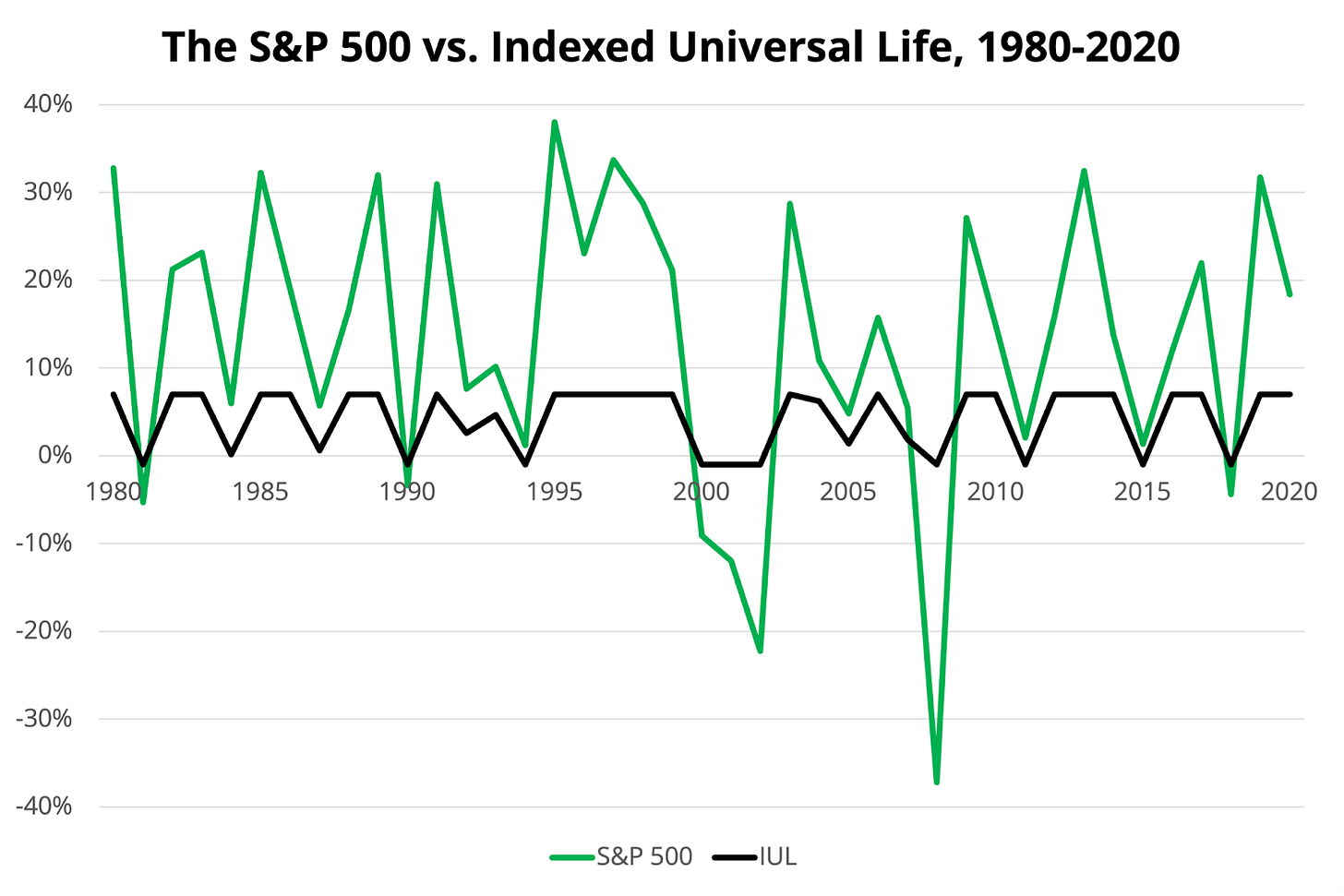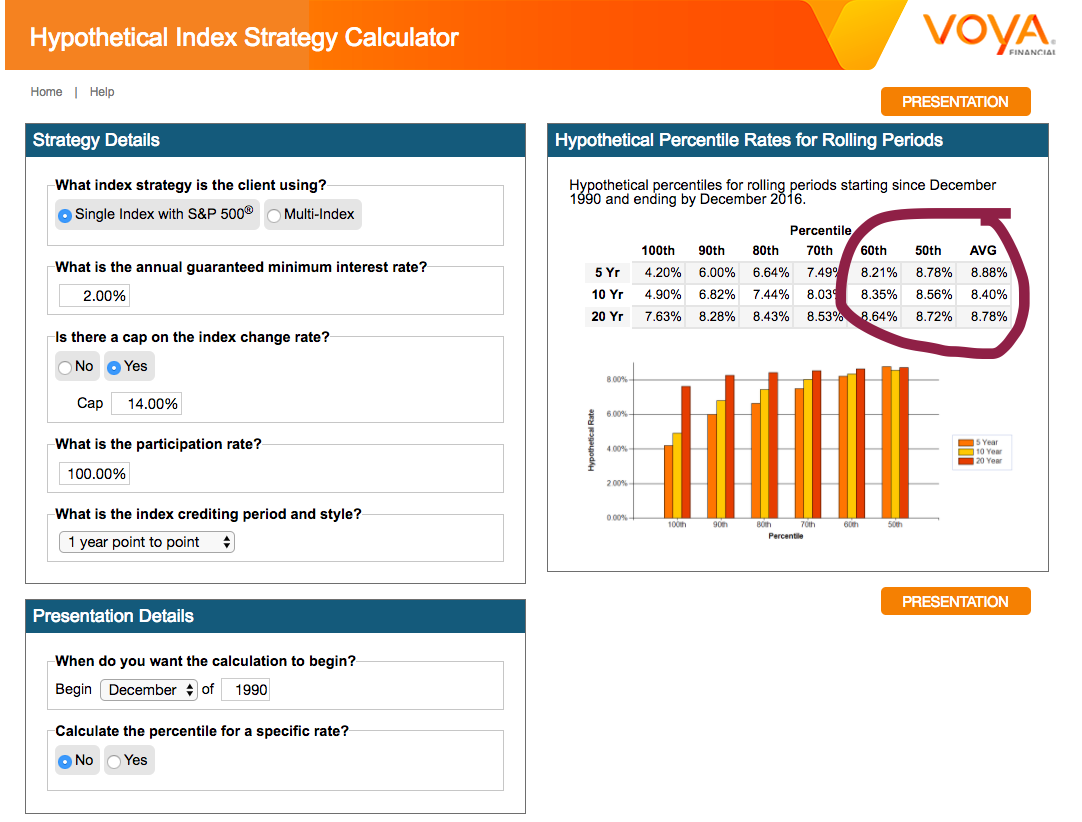All Categories
Featured
Table of Contents
1), frequently in an effort to beat their group averages. This is a straw guy debate, and one IUL individuals love to make. Do they contrast the IUL to something like the Vanguard Total Stock Market Fund Admiral Show to no tons, an expenditure proportion (EMERGENCY ROOM) of 5 basis factors, a turnover proportion of 4.3%, and a phenomenal tax-efficient record of circulations? No, they contrast it to some dreadful actively managed fund with an 8% tons, a 2% EMERGENCY ROOM, an 80% turn over proportion, and a terrible record of short-term funding gain circulations.
Common funds frequently make yearly taxable circulations to fund owners, even when the value of their fund has dropped in value. Shared funds not just need earnings reporting (and the resulting annual tax) when the common fund is going up in value, however can additionally enforce revenue tax obligations in a year when the fund has decreased in worth.
You can tax-manage the fund, collecting losses and gains in order to decrease taxable distributions to the investors, yet that isn't somehow going to alter the reported return of the fund. The possession of common funds may require the mutual fund owner to pay estimated taxes (index life insurance companies).

IULs are very easy to place so that, at the proprietor's death, the beneficiary is not subject to either revenue or estate tax obligations. The same tax reduction strategies do not work nearly also with shared funds. There are many, often expensive, tax traps connected with the moment trading of common fund shares, catches that do not put on indexed life Insurance coverage.
Opportunities aren't very high that you're mosting likely to be subject to the AMT as a result of your shared fund distributions if you aren't without them. The rest of this one is half-truths at ideal. For example, while it holds true that there is no revenue tax because of your beneficiaries when they acquire the profits of your IUL plan, it is also true that there is no income tax because of your beneficiaries when they acquire a common fund in a taxed account from you.
Variable Universal Life Calculator
There are much better methods to prevent estate tax problems than acquiring financial investments with reduced returns. Common funds may create earnings tax of Social Protection benefits.

The development within the IUL is tax-deferred and may be taken as free of tax earnings through finances. The plan owner (vs. the shared fund supervisor) is in control of his/her reportable revenue, thus enabling them to minimize or even remove the tax of their Social Protection benefits. This set is excellent.
Here's another very little issue. It holds true if you get a shared fund for claim $10 per share prior to the distribution day, and it distributes a $0.50 circulation, you are after that mosting likely to owe taxes (possibly 7-10 cents per share) although that you haven't yet had any type of gains.
In the end, it's really about the after-tax return, not how much you pay in taxes. You're also possibly going to have more money after paying those tax obligations. The record-keeping requirements for having shared funds are significantly more complicated.
With an IUL, one's documents are maintained by the insurance provider, duplicates of yearly statements are sent by mail to the proprietor, and circulations (if any) are completed and reported at year end. This one is likewise type of silly. Naturally you must maintain your tax obligation documents in case of an audit.
Equity Indexed Life Insurance Definition
Hardly a reason to get life insurance policy. Common funds are typically part of a decedent's probated estate.
In enhancement, they undergo the delays and expenditures of probate. The proceeds of the IUL plan, on the other hand, is constantly a non-probate circulation that passes beyond probate directly to one's called beneficiaries, and is therefore not subject to one's posthumous financial institutions, unwanted public disclosure, or comparable hold-ups and expenses.
We covered this one under # 7, but just to summarize, if you have a taxable common fund account, you need to place it in a revocable trust (and even simpler, use the Transfer on Fatality designation) in order to prevent probate. Medicaid disqualification and lifetime earnings. An IUL can give their owners with a stream of earnings for their entire life time, regardless of for how long they live.

This is beneficial when arranging one's events, and transforming properties to income before an assisted living facility arrest. Shared funds can not be converted in a comparable manner, and are nearly always considered countable Medicaid assets. This is another stupid one advocating that poor individuals (you recognize, the ones that need Medicaid, a federal government program for the bad, to spend for their assisted living facility) must make use of IUL as opposed to shared funds.
Problems With Indexed Universal Life Insurance
And life insurance coverage looks awful when compared fairly versus a pension. Second, individuals who have money to get IUL over and beyond their pension are mosting likely to have to be awful at managing money in order to ever before receive Medicaid to pay for their assisted living home costs.
Persistent and terminal illness rider. All policies will permit an owner's simple accessibility to cash from their policy, often forgoing any type of abandonment fines when such people endure a serious ailment, need at-home treatment, or become restricted to a retirement home. Mutual funds do not provide a comparable waiver when contingent deferred sales charges still put on a shared fund account whose proprietor needs to sell some shares to money the prices of such a remain.
Universal Underwriting
You get to pay more for that advantage (motorcyclist) with an insurance plan. Indexed global life insurance policy supplies death advantages to the beneficiaries of the IUL owners, and neither the proprietor neither the recipient can ever before lose cash due to a down market.
Now, ask yourself, do you actually need or desire a survivor benefit? I absolutely do not require one after I get to financial independence. Do I want one? I suppose if it were low-cost sufficient. Obviously, it isn't inexpensive. On standard, a purchaser of life insurance policy pays for truth cost of the life insurance policy benefit, plus the costs of the policy, plus the profits of the insurer.
Why Indexed Universal Life Insurance Might Be New 401k
I'm not entirely certain why Mr. Morais included the whole "you can't shed money" once more below as it was covered quite well in # 1. He just intended to duplicate the most effective marketing point for these points I intend. Once more, you don't lose nominal dollars, but you can shed genuine bucks, as well as face major possibility cost because of low returns.

An indexed global life insurance coverage policy owner might exchange their plan for a totally various policy without causing earnings tax obligations. A common fund proprietor can stagnate funds from one shared fund business to an additional without marketing his shares at the previous (therefore activating a taxed event), and redeeming new shares at the last, usually subject to sales charges at both.
While it holds true that you can exchange one insurance coverage policy for another, the reason that people do this is that the initial one is such a terrible plan that also after acquiring a brand-new one and going through the early, negative return years, you'll still come out ahead. If they were sold the best plan the very first time, they shouldn't have any kind of wish to ever exchange it and experience the very early, adverse return years once again.
Latest Posts
History Of Universal Life Insurance
Universal Life Insurance With Living Benefits
Accumulation At Interest Option